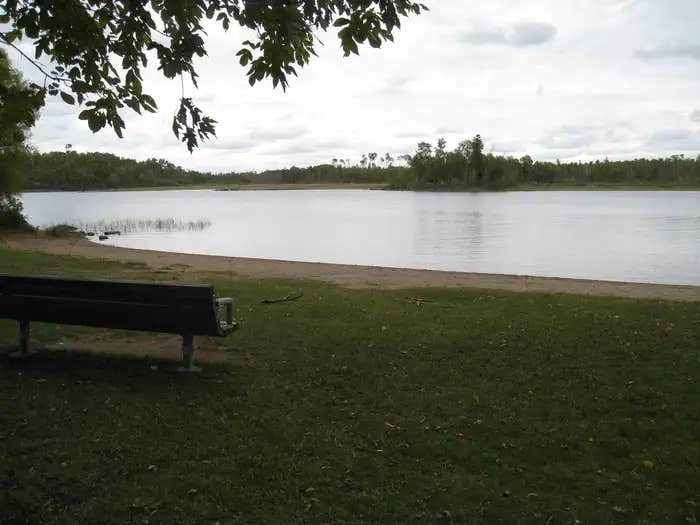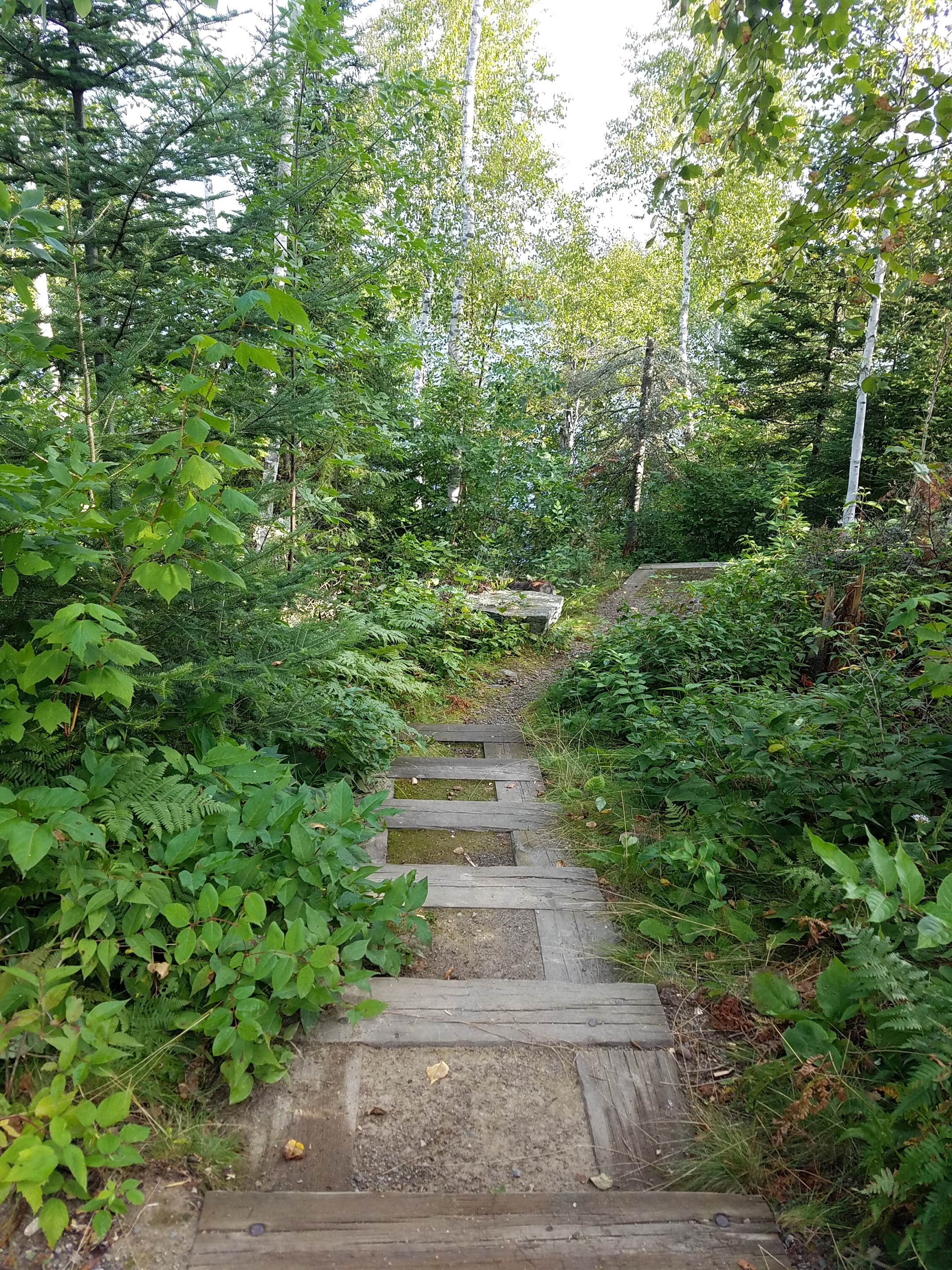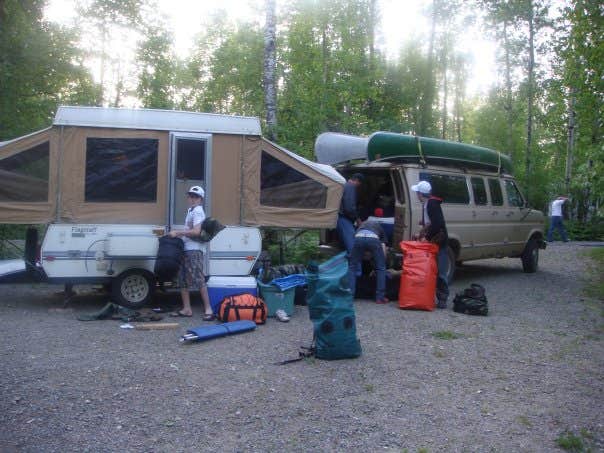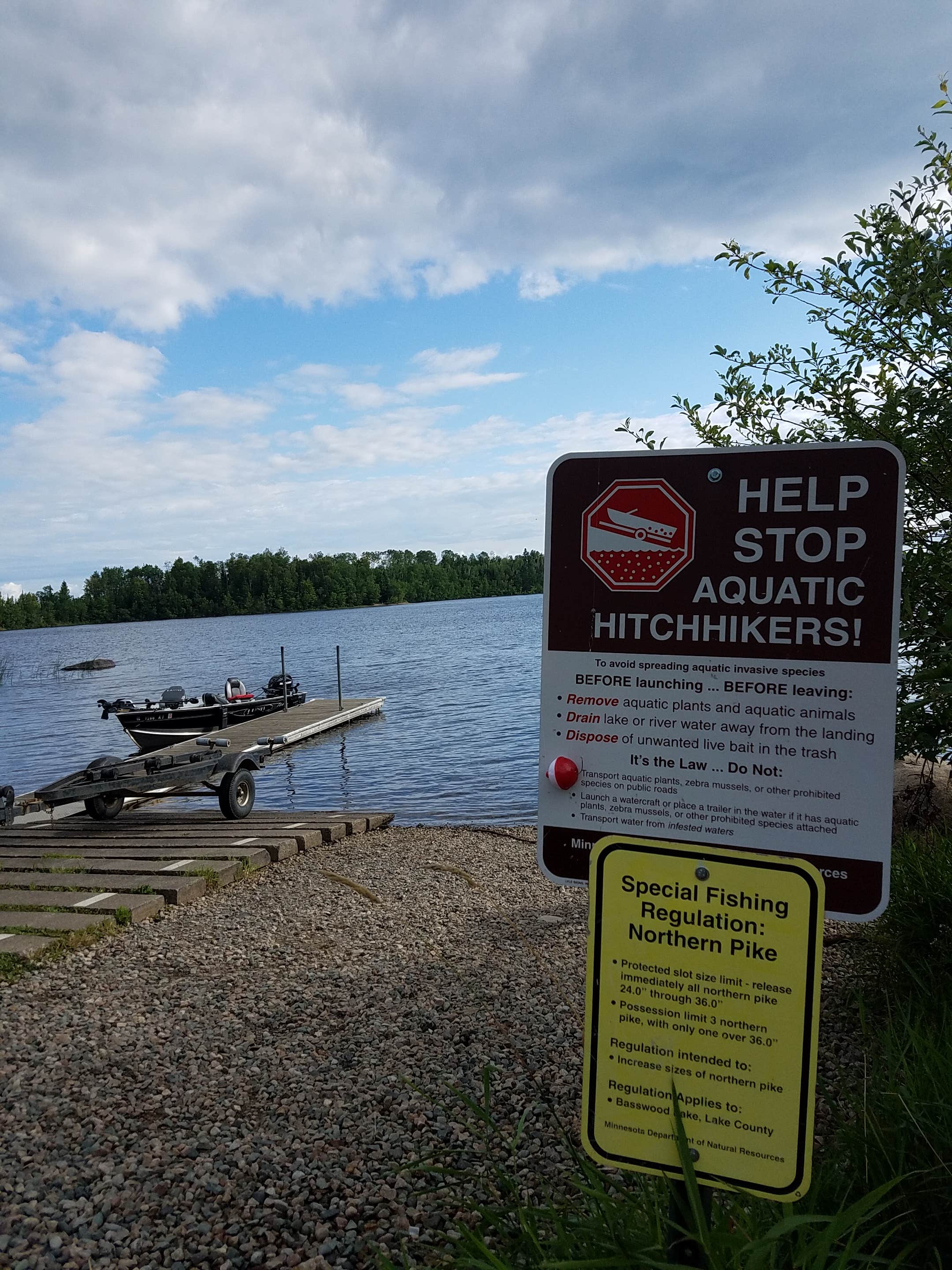Public Campground
Superior National Forest Fall Lake Campground
Superior National Forest Fall Lake Campground, near Ely, Minnesota, is a fantastic spot for those looking to enjoy the great outdoors with a blend of comfort and nature. The campground features spacious, wooded sites that offer a good amount of privacy, making it a perfect escape from the hustle and bustle.
You’ll find clean facilities, including well-maintained bathrooms and hot showers, which visitors appreciate after a long day of activities. Many campers have praised the friendly campground hosts who are always around to help and share tips about the area. As one reviewer noted, “The hosts are incredibly nice! You can tell they truly have a vested interest in the grounds.”
Fall Lake itself is a gateway to the Boundary Waters Canoe Area Wilderness, making it easy to launch your canoe and explore the stunning waterways. The campground also has a beach area for swimming and a playground for the kids, ensuring there's something for everyone.
If you’re into fishing, you’ll be pleased to know that the lake is home to Northern and Smallmouth Bass, with plenty of spots to cast your line. Plus, Ely is just a short drive away, where you can find local shops and eateries to stock up on supplies or grab a bite. Whether you're camping in an RV or pitching a tent, Superior National Forest Fall Lake Campground offers a great mix of relaxation and adventure.
Description
Overview
Fall Lake Campground is located on the shores of Fall Lake and provides direct access into the Boundary Waters Canoe Area Wilderness (BWCAW). The campground opens in early May in time for walleye fishing season, making it a popular place for anglers. Others are drawn to Fall Lake for its birding, swimming, hiking and boating opportunities. Superior National Forest, located in northeastern Minnesota's arrowhead region, is comprised of 3 million acres. The forest spans 150 miles along the United States-Canada border.
Recreation
Part of Fall Lake lies within the BWCAW, while the rest of the lake is open to unrestricted boating, permits are required to enter the BWCAW. View recreation guides and maps of hiking trails and canoe routes in the national forest. Kids love the campground's swimming beach, playground and picnic area. A 1.5 mile hiking trail is also a favorite pastime for families. Anglers can try their luck for smallmouth bass, walleye, northern pike, crappie, perch and bluegill. Some campers might be interested in the unique opportunity to view the visitor center's display of replica artifacts found during archaeological digs within the campground and surrounding areas. There's no shortage of popular local events to attend, including the City of Ely's July 4th fireworks, the Blueberry Festival (the last full weekend in July) and the Harvest Moon Festival-mid September.
Facilities
This lake has some sites that can be reserved and some that are first-come, first-served. Many sites at Fall Lake are made to accommodate RVs including pull-through sites. Trees provide privacy between most campsites. The facility is very accessible. A store, canoe rentals, firewood and ice are available at the facility, and a campground host is on-site during the season.
Natural Features
The campground is nestled among majestic pine and abundant aspen and fir trees, providing the ultimate northwoods setting. Average summer temperatures are a pleasant 60-75 degrees. Birds and wildlife are abundant.
Contact Info
For facility specific information, please call (218) 365-2963.
Nearby Attractions
Guests may want to take a day trip to the Dorothy Molter Museum, International Wolf Center, North American Bear Center, Ely-Winton History Museum or Soudan Mine. By far the most popular nearby attraction is the Boundary Waters Canoe Area Wilderness. Over one million acres in size, the Boundary Waters contain over 1,200 miles of canoe routes, 12 hiking trails and over 2,000 designated campsites.
Location
Superior National Forest Fall Lake Campground is located in Minnesota
Directions
Fall Lake is located in Northeast MN, 100 miles North of Duluth MN. From Duluth, MN, take Highway 53 north for 50 miles to Virginia, MN. Take Highway 169 northeast for 50 miles to Ely, Minnesota, travel an addition 6.5 miles to County Road 182 (Fall Lake Road). Travel north on County Road 182 for 2 miles.
Address
KAWISHIWI RANGER DISTRICT
1393 HIGHWAY 169
Ely, MN 55731
Coordinates
47.9525 N
91.7163889 W
Connectivity
- T-MobileNo Coverage
- VerizonLTESome CoverageVerified by 8 usersLast on 1/27/26
- AT&T5GExcellent CoverageVerified by 11 usersLast on 1/27/26
Connectivity
- T-MobileNo Coverage
- VerizonLTESome CoverageVerified by 8 usersLast on 1/27/26
- AT&T5GExcellent CoverageVerified by 11 usersLast on 1/27/26
Access
- Drive-InPark next to your site
- Walk-InPark in a lot, walk to your site.
- Boat-InSites accessible by watercraft.
Site Types
- Tent Sites
- RV Sites
- Standard (Tent/RV)
- Group
Features
For Campers
- Market
- Trash
- Picnic Table
- Firewood Available
- Phone Service
- Reservable
- WiFi
- Drinking Water
- Electric Hookups
- Toilets
- Alcohol
- Pets
- Fires
For Vehicles
- Pull-Through Sites
- 50 Amp Hookups
Drive Time
- 2 hrs 2 min from Duluth, MN
- 3 hrs 53 min from Minneapolis, MN
- 4 hrs 7 min from St. Cloud, MN
- 4 hrs 18 min from Eau Claire, WI








































































